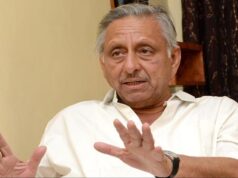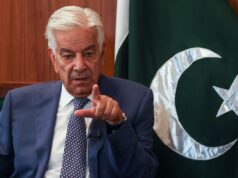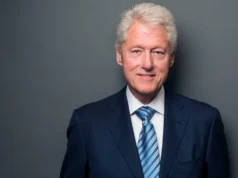Trump said that an improvised flamethrower attack on a Jewish demonstration in Colorado, which US officials attributed to a guy they claimed was in the country illegally, was the impetus behind the legislation.
Washington D.C. One of the most contentious policies from his first term was reinstated Wednesday as US President Donald Trump signed a new travel ban that targets 12 nations, including Afghanistan, Iran, and Yemen.
Trump said that an improvised flamethrower attack on a Jewish demonstration in Colorado, which US officials attributed to a guy they claimed was in the country illegally, was the impetus behind the legislation.
Afghanistan, Myanmar, Chad, Equatorial Guinea, Eritrea, Haiti, Iran, Libya, Somalia, Sudan, and Yemen are among the countries whose citizens are prohibited.
Trump also partially banned travel from seven nations: Venezuela, Burundi, Cuba, Laos, Sierra Leone, Togo, and Turkmenistan.
According to the White House, both will take effect on Monday.
In a video address from the Oval Office that was uploaded to X, Trump stated, “The recent terror attack in Boulder, Colorado has underscored the extreme dangers posed to our country by the entry of foreign nationals who are not properly vetted.”
“We don’t want them.”
Trump likened the new restrictions to the “powerful” ban he placed on many predominantly Muslim nations during his first term, which severely disrupted international travel.
According to the US POTUS, the 2017 restriction prevented the US from experiencing terror strikes in Europe.
“We will not let what happened in Europe happen in America,” Trump stated.
“Open migration from any nation where we are unable to securely and successfully screen and vet is not an option. For that reason, I am issuing a new executive order today that restricts travel to a number of nations, including Yemen, Somalia, Haiti, Libya, and many more.”
“Being in the United States is a great risk for anyone, not just for Venezuelans,” stated Diosdado Cabello, the country’s interior minister, following the decision, cautioning the populace against visiting the country.
However, like many of the extreme actions he has taken during his rapid return to power, Trump’s new travel ban may be challenged in court.
“Dangerous actors from abroad”
The White House abruptly announced the new ban just minutes after Trump had spoken to 3,000 political appointees from his balcony during a joyous “summer soiree.”
Additionally, it was unusual for Trump to make the announcement without any media in attendance. At signing ceremonies in front of reporters in the Oval Office, he has made many of his most dramatic policy pronouncements.
After the Colorado incident, there were rumors of a new Trump travel ban, as his administration had promised to target “terrorists” who were in the US on visas.
Suspect Mohammed Sabry Soliman is accused of spraying flaming gasoline and throwing fire bombs onto a crowd that had gathered on Sunday to support Israeli hostages held by Hamas.
According to US Homeland Security officials, Soliman sought for asylum in September 2022, although he was in the country illegally after overstaying a tourist visa.
On X, White House Deputy Press Secretary Abigail Jackson stated, “President Trump is keeping his pledge to defend Americans against hostile foreign actors who wish to enter our nation and harm us.”
These reasonable limitations apply to certain countries and include those that do not exchange identification and danger information, have significant visa overstay rates, or lack adequate verification.
Trump’s proclamation, which claims to be intended to safeguard the United States against “foreign terrorists and other national security” threats, provided particular justifications for each nation.
It said that war-torn Libya, Sudan, Somalia, Yemen, and Taliban-ruled Afghanistan lacked “competent” central authorities for passport processing and vetting.
Additionally, it stated that Yemen was the “site of active US military operations,” where American soldiers have attacked Huthi rebels backed by Iran.
The directive listed Iran as a “state sponsor of terrorism,” with which the United States is negotiating a potential nuclear agreement.
Trump’s order cited an above-average risk of visa overstays for the majority of the other nations.
Trump intensified his war on what he views as a bastion of liberalism on Wednesday by announcing a suspension on visas for international students who are scheduled to start attending Harvard University.







